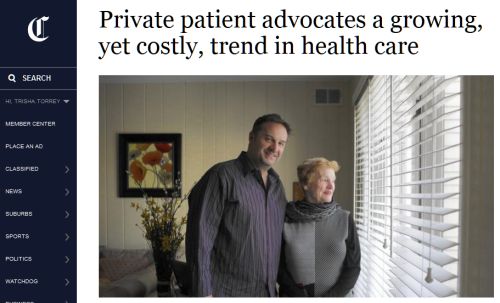With the national presidential conventions behind us, and particularly if you live in a swing state, you know that the political campaigning, dressed as attacks and vitriol, is only revving up (as if it can get any worse?)
This presidential election will be the first one that social media – like Facebook, Pinterest and Twitter – will be used by the mainstream to share opinions and information. Possibly for the first time, you’re going to learn what your friends and followers, and those you follow, think about which candidate – and why. You’re going to learn more about them than you ever knew, and I guarantee that if you spend much time on social media, you’ll be surprised, and in some cases, disappointed or even shocked by the things some of them have to say.
Some will make snide little comments. Others will be downright nasty. You’ll agree with some. And sadly, there will be others who you will never like, or respect, again.
Which is why, as a professional, you need to keep your virtual mouth shut, and your fingers still, when it comes to expressing your opinion about any issue that can be considered contentious. As an independent advocate, you cannot afford to alienate others by publicly expressing your opinions about candidates or issues of any flavor.
This came up on Twitter one day recently. I was floored to see an advocate I know, one who has been quite successful in her business, retweeting (in effect, forwarding to all her followers) a statement about one political party’s stance on abortion and Roe v. Wade. I understand she was just sharing her opinion. And I’m sure it didn’t occur to her it could become a problem. Since she mostly works with the elderly, none of them would be on Twitter, right?
But adult children of the elderly are certainly on Twitter. As are the people who might ever recommend her services. As are her friends – and her competitors. The minute she took a stance in one direction or the other, she alienated people who favor the opposite point of view.
It’s not a big leap to hear her competitor tell a potential client (one they are both interviewing with), “Oh, yes, I know Joan Advocate. I saw her talk about her pro-abortion stance the other day.” It’s an even shorter hop to see a neighbor who was thinking of calling her to talk about her elderly uncle’s needs just deciding not to call.
Do any of us have the luxury of alienating a large portion of our target audiences?
If you want to participate in the conversations you see taking place online, then do so by asking questions as neutrally as possible, without giving away your own opinions. “Tell me why you are so supportive of ___.”? or “What bothered you about the candidate’s statement?” Use it as an opportunity to learn more about others while, as much as possible, preventing them from passing judgement on you.
This is not to suggest you shouldn’t have opinions! Nor do I suggest you shouldn’t express them, in person, with family and friends. And yes, it’s possible there will be issues or even people you can discuss that won’t be contentious or turn off large groups of potential clients or influencers.
Rather, this advice is about what and how you share opinions publicly that can be used against you, in hopes of preventing you from shooting yourself in your business building foot.
? ? ? ? ? ? LEARN MORE ? ? ? ? ? ?
FOR PATIENTS | FOR ADVOCATES | FOR POTENTIAL ADVOCATES
Do You Endorse the Health Advocate’s Code of Conduct and Professional Standards?
? ? ? ? ? ? ? ? ? ? ? ?





God help the day when my business interests become a determining factor in expressing my freedom of speech and become more important than standing up for what I think is right for patient welfare and our country. If we all remain neutral and are “afraid” to be seen or heard as any way that is controversial, then we have no hope of helping people who are unable to advocate for their own interests.
I’ve thought about this even before seeing your blog, Trisha, and I realize I state a lot of things publicly on my facebook page that I wouldn’t discuss with patients. I have always made it a habit to refuse “friend” requests from the patient population I served as an RN, but if anyone did a search for me, they can certainly read quite extensively what my stance is on many issues. I’m not sure if I should spend time cleaning up my personal page due to professional interest, or if I should let the chips fall where they may. I am, apparently and after all, an apologist.